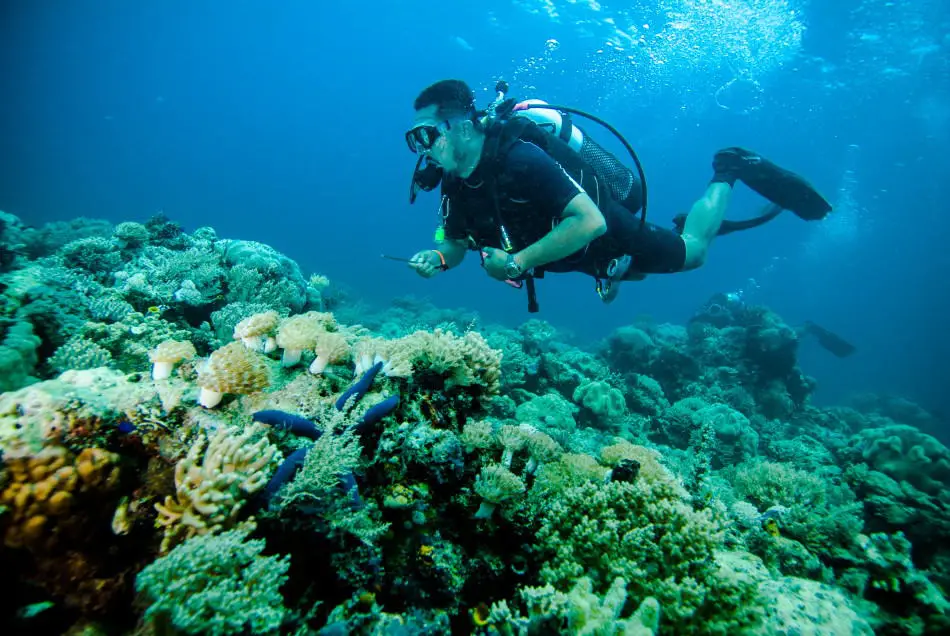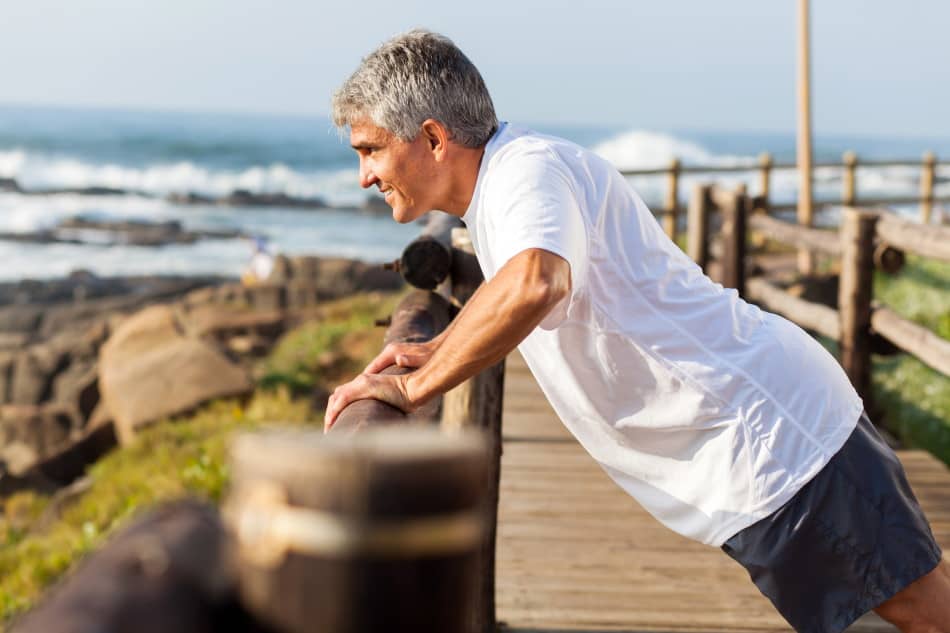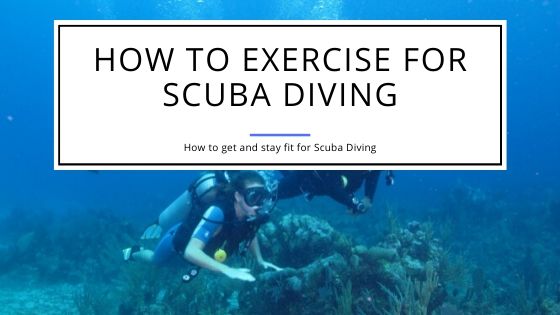How to Exercise for Scuba Diving
Many recreational divers do not understand the importance of their physical fitness when they dive. They are all worried about their gear and to have the latest dive computers but many do not keep in shape and stay fit in order to improve their safety underwater.
How to Get and Stay Fit for Scuba Diving
Diving sometimes is also referred to as the lazy man’s sport. This might come from the assumption that everything is done slowly underwater. Except if a hungry shark is after you…
Kidding aside, every diver experienced how nature takes its toll on the body. Cold water, strong currents are just two of the forces that cause quite a bit of strain on the body. Exercising and keeping the body in shape helps tremendously when underwater.
A diver in good shape has an easier time conserving air while diving as their heart rate will be slower and their breathing will be shallower and slower. A healthy and fit diver will not only be a safer diver but also enjoy the experience a lot more.
Benefits from being in good shape
Being in good shape as a diver allows us to breathe shallowly and reduce the strain on our bodies while underwater. This helps to conserve air and, more importantly, reduces the nitrogen build-up in the body and blood. It also helps with getting rid of any built-up nitrogen in our body faster after a dive which makes it safer when diving again after a short period of time.
As a recreational diver being in good shape does not mean that you have to be able to run a marathon. Simply watching your weight and maintaining a solid physical fitness level is enough. Best of all, you also don’t need to put on muscles to look like Conan in the movie. Just being fit and keeping your weight in check is usually enough to have a safe dive experience.

Cardiorespiratory Endurance and Fitness
The exercises a diver requires and that help with the safety underwater are not aimed at building huge muscles or short bursts of energy. Diving requires the ability of the body to perform a prolonged exercise at moderate intensity levels.
Building up the cardiorespiratory endurance improves the body’s ability to use oxygen optimally and thus allows to use less air while diving. Regular good workouts in the gym are the basis for a great diving experience.
Having a body trained at this level also reduces the overall risk of decompression sickness. The body will build up less nitrogen during a dive and is also able to flush out any built-up nitrogen faster after a dive.
Types of Exercises
Pretty much any cardio exercise will be beneficial for a diver. As already mentioned, it’s not necessary to build up a lot of bulky muscles. That does not mean that you shouldn’t do muscle-building exercises as part of your work out. It always helps to build some muscles!
Walking, Running and Cycling
A good start for building up some fitness levels is to simply start to walk every day. Simply taking a half-hour walk every day or even a couple of shorter walks will help to build a base level.
Cycling or running do certainly help to build up the cardiorespiratory endurance of the body. It’s not required to be able to run a 10k or marathon but building up some stamina through some longer runs or bicycle rides a week is beneficial. Cycling is probably one of the best exercises you can perform as a diver. The circular motion of the legs is related to the movements when finning. It’s also rather gentle on the joints and tendons to help you stay healthy.
(Re)Build some muscle
Diving does not necessarily require a lot of muscle strength. Yes, the gear is heavy while above the sea but once you’re diving it’s basically of no concern. Nevertheless, when getting older we all lose some muscle mass. It’s beneficial to simply try to keep that in check and keep your muscle strength up to levels that you had when you were young.
A few simple muscle-building exercises a week will do wonders for your body. Some squats with dumbbells, chest- and bench-presses with weights, push-ups, and sit-ups are a good start. Do repetitions of those three to four times a week and you will be able to maintain your base muscle mass. Don’t take this as the bible for your exercises. Consult with a personal trainer or pick specific scuba diver exercises to build up some muscle mass.

Abs and Back Muscles
The most strain on your muscles comes from the gear while above water. It, therefore, is helpful to include some abs and back exercises (like the mentioned sit-ups) into your routine. For the back you can simply lay on your stomach and then lift your head, arms and legs up and keep them in that position for a few seconds. Repeat this exercise several times to strengthen your torso and back muscles.
Arch Muscles
A good exercise is to stand with bare feet. Keep the heel planted and have your toes in one foot pick up something like a sock and lift it up. Keep your toes pointing up for one or two seconds and repeat several times. Then switch to the other foot. The holding of an item like a sock while also lifting your toes up builds and strengthens the muscles that support the arch in your foot. This will help to prevent cramps during finning.
Calves
Next to your feet, your calves are heavily used when diving and finning. The calves are the second most hit area when it comes to cramping during a dive. Similar to your feet, this will instantly end your dive in a very non-enjoyable way. Perform some strengthening exercises for your calves like standing on the step of a stair. Keep the balls of your feet on the step and lower your heels as far as you can toward the floor. Then raise your heels up as far as you can. This stretches and strengthens your calve muscles through the same exercise. Repeat this exercise a few times and do it a few times each week.
Stretching
Keeping somewhat flexible is a good physical condition for anybody. For a diver, the flexibility required is in the feet. Finning like a fish can stretch your feet and ankles quite a bit and if you’re not flexible and strong enough this can lead to painful cramps which will shorten your dive instantly.
Part of stretching is that you also do some warm-up exercises before a dive. Even if you play golf you probably will perform some swings to loosen up before you play a round. It’s a good idea to stretch and warm up a little before you dive also (How to Stay Warm while diving). Don’t overdo it though as you don’t want to exhaust yourself before you hit the water!
Breathing Exercises
Breathing calmly underwater is essential. Even in unforeseen situations, it does become important to know how to regulate and calm your breathing. Yoga can be an excellent exercise to learn to calm your breathing and to improve your overall lung function and increase lung capacity. Other simple exercises can help to improve your overall breathing and help you calm down. Practice deep breathing whenever you have a moment.
Feed your Body – Hydration and Nutrition
It’s important for anybody to stay hydrated. When you’re diving dehydrated you increase your risk for DCS. A rule of thumb is to drink half of your body weight in ounces. And with drinking, we’re talking non-alcoholic beverages…
On a serious note though. Alcohol is dehydrating so don’t get hammered the night before a dive (An In-Depth Guide To Night Diving) as it will most likely get you into a dehydrated state which does increase your risk of DCS. And under no circumstances should you ever dive with alcohol in your body. Not only does it dehydrate it also severely impacts your decision-making capabilities which can be bad news underwater!
Besides keeping in shape and exercising, nutrition is also a very important part of your health. There’s quite a lot of divers out there that think of diving as a lot of exercises which then justifies overeating. Or that even eat before diving because it will burn so many calories. Eat nutritiously and keep the portions small before the dive. And after diving stick to the same regimen. Don’t overeat and make sure to eat healthy food. Junk food or fast food will not be your friends in the long run! Simply eating a banana before a dive and then a sports drink like Gatorade after the dive will keep you replenished without the risk of gaining a few pounds…

Use Common Sense
Diving requires you to be in shape. A huge amount of dive-related deaths in the water come from heart disease.
Have your regular physicals and discuss your risks with your doctor. Nutrition, sport and family history can and will play a role in your risk for heart problems. Have yourself checked out regularly to minimize that risk so you can enjoy diving for years to come!
Besides the physical requirements, there’s also mental training you should perform. Diving requires you to problem-solve on the spot. The calmer you can react to outside situations during a dive the better your decisions and the outcome will be.

